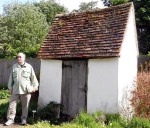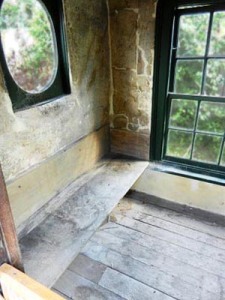The respected New Yorker staff writer George Packer captured this fear well in an essay about why he does not tweet: “Twitter is crack for media addicts. It scares me, not because I’m morally superior to it, but because I don’t think I could handle it. I’m afraid I’d end up letting my son go hungry.” Tellingly, when he wrote that essay, Packer was busy writing his book The Unwinding, which came out soon after and promptly won the National Book Award—despite (or, perhaps, aided by) his lack of social media use.
From Cal Newport, Deep Work: Rules for Focused Success in a Distracted World
——————–
Recenlty, I met for lunch with a small group of three others. We had some important items to discuss. So, the dilemma – where to meet? The first suggested choice was rejected for one simple reason – it was too loud. We needed a quieter place to meet. (And, we found such a quieter place).
Consider that story as a metaphor of our age. There are plenty of times when we find ourselves in a noisy place – but we have to seek out the quiet places.
This is true in our own little worlds. Our iPhones and iPads and laptops and desktops are so noisy. Maybe not actual noise; but noisy they are. New notifications constantly arrive of emails, Facebook updates, LinkedIn messages, and so much more. And, by the way, my goodness, it’s been a whole 10 minutes since I last checked the headlines. What has happened in the last 10 minutes? I’ve got to know – now…

In the book Deep Work, we read of the way that Carl Jung would pull away for extended periods of time, to read and ponder and think and write. He went to his lakehouse, Bollinger Tower, where he was pretty much unreachable. And, as a result, he shaped a discipline, and helped a world.

As I read about this “get away from it all” discipline, I thought back to a wonderful trip I took years ago through portions of England, Scotland, and Wales. A high point was a small village just 50+ miles from London called Olney. In the village in the 1700s two remarkable men lived, and collaborated. One of them would sit in his “summer cottage” and write poetry. The other would sit in his attic study, also writing poetry and preparing his sermons. John Newton could look out from his attic window and see William Cowper writing in his summer cottage. Later, the two would meet in that summer cottage, share their poetry with each other, and finally put the poems together into the early English Language hymnal Olney Hymns (published in 1779).
You might know a couple of hymns from that book: God Moves in a Mysterious Way, written by Cowper, and Amazing Grace, written by Newton.
Here’s the lesson for this blog post. It took a “work alone with no distractions” work place to write such great poetry. And then, it took a similar “leave us alone” work space to compile the poems into a publishable book of hymns.

Think of what we would have lost if Newton and Cowper had been constantly interrupted, and had not carved out time to do their deep work.
After reading Deep Work, here’s what I’ve come to understand – it is the deep, uninterrupted work that matters most, and that work makes the lasting difference.
Here’s Mr. Newport’s definition of Deep Work:
Deep Work: Professional activities performed in a state of distraction-free concentration that push your cognitive capabilities to their limit. These efforts create new value, improve your skill, and are hard to replicate.
And here’s what I think – we need to find the place, the time, the discipline, the way to do more deep work ourselves.
